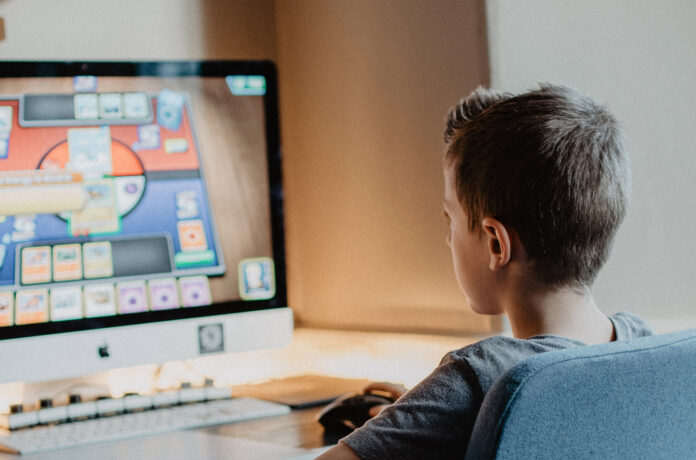
Safer Internet Day 2025, which took place earlier this week on Tuesday 11th, was based around the theme, “Prepare / Protect / Thrive: Navigating Algorithms and Influencers.” In a world of endless online information, it provided an opportunity for exploring ways to empower children to thrive, equipped with skills to navigate both the opportunities and challenges of these powerful online influences.
Excessive internet use is spiralling, with most young people now constantly online. Recent CSO figures reveal that nearly 8 in 10 are on the internet almost all day, every day.
The AI era has well and truly arrived, too, ushering in a host of unseen dangers for our children, from smarter, AI-powered online grooming to deepfakes: AI-generated, explicit photos that bring cyberbullying to an entirely new level. Coupled with powerful social media algorithms serving teenagers with high levels of harmful content, it’s never been more important to recognise the risks and keep children safe online.
The following tips will help to protect children online.
Recognise new risks
The internet is changing rapidly, posing new dangers to teenagers and children. It’s important to know what AI tools and websites your children may be using and be aware of risks such as toxic social algorithms, doxxing, deepfake, and AI-powered online grooming.
Brush up on AI
With the advent of AI comes a host of new tools and terminologies. Staying abreast of evolving apps, phrases and risks – from ChatGPT to DeepSeek, AI algorithms and AI bias – will mean you’re better equipped to protect your child from potential pitfalls.
Discover the best parental control apps
Parental control apps allow you to monitor and restrict your child’s internet and phone use across multiple devices. The best ones offer features like screen time and call/texting limitations, website and app blocking, location tracking and harmful search restrictions. Take time to research features and pricing across each app to find one that best suits your needs.
Set screen time boundaries
Excessive internet use by children can impact their well-being and behaviour. As 80% of our young now spend almost all day online, explaining and setting clear boundaries is important. Use parental control apps to set screen time or device limitations or filter by website so children can access educational sites but not social media.
Set social restrictions
New research by the Dublin City University anti-bullying centre in 2024 revealed that high levels of harmful content – from toxic masculinity to misogyny – were being served to teenage boys across TikTok and YouTube. Fortunately, each social media platform has privacy settings and safety tips for parents. Check them out before you let children have their accounts.
Be clear on do's and don'ts
Be clear about the non-negotiables. For example, teach your child not to share personal details or photos with strangers and instruct them not to click links to unknown websites or texts. Do encourage your child to question what they see and only accept friend requests from people they know.
Protect against viruses
Install antivirus software on family devices to minimise the risk of cyber attacks or scams. Use two-factor authentication (2FA) for extra security on your online accounts. This can also stop children from signing into services they're not allowed to use.
Be open and supportive
Let your children know you’re on hand for advice should they need it. Creating a relaxed, positive environment helps build trust and means you won’t be left in the dark should any issues arise.
‘SEEK SUPPORT IF YOU NEED IT’
“As excessive internet use spirals and AI usage ramps up in classrooms and households throughout the country, it’s vital that parents stay vigilant to new, unforeseen dangers to teenagers and children,” Eoin Clarke, broadband expert at Switcher.ie said.
“Risks such as deepfake cyberbullying, harmful AI-generated hate speech and bias, as well as overreliance on AI apps, can impact a child’s sense of reality, mental health and learning skills.
“Brushing up on your AI knowledge, being aware of the risks, and setting appropriate boundaries can help protect children from potential pitfalls. Parental control apps offer location tracking, screen time restrictions, harmful websites, and search filtering, but take the time to compare the features and pricing of each one to find the best one for your family's needs.
“Always seek support if you need it. Websites like Webwise.ie and Cybersafekids.ie have free online resources, while Parentsline.i.e. offers a national, confidential helpline should you want to talk,” he concluded.
RESOURCES
There are some great resources like Webwise.ie, internetmatters.org, and Cybersafekids.ie, which can help you recognise and reduce online dangers and seek advice if you think your child is experiencing cyberbullying or is at risk online.







